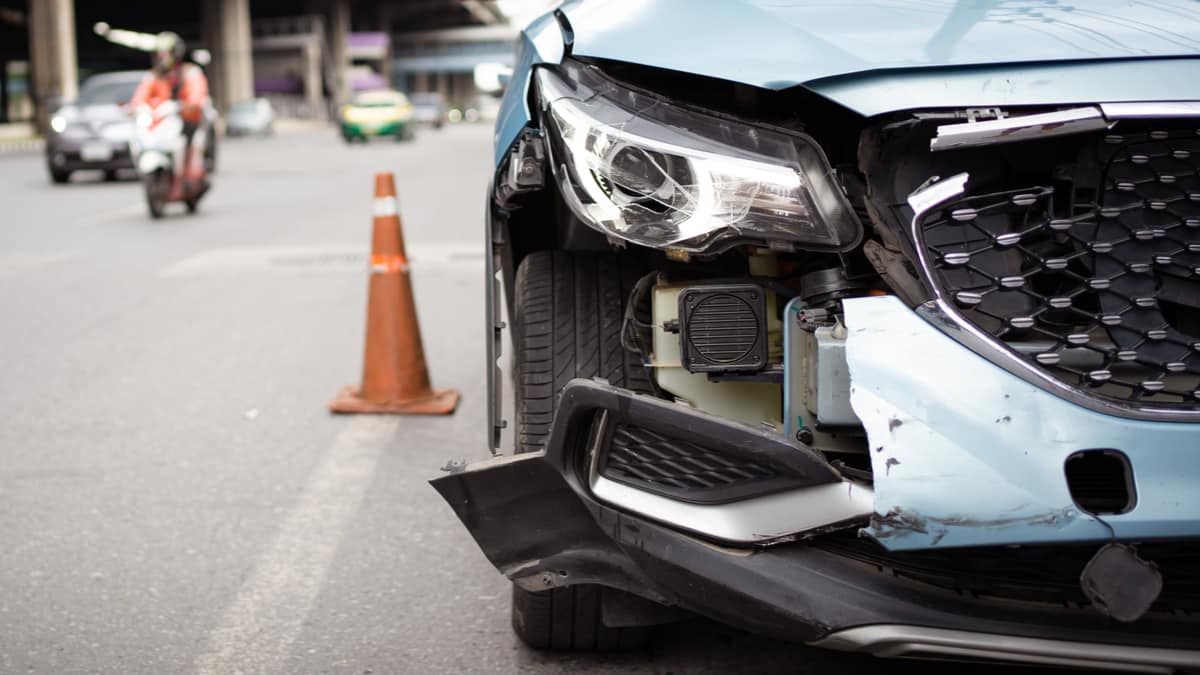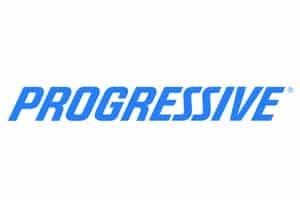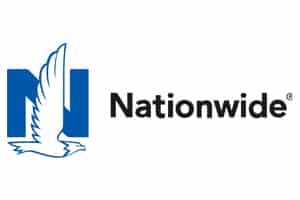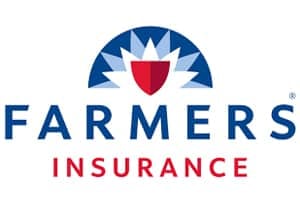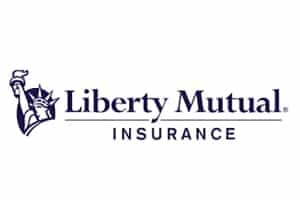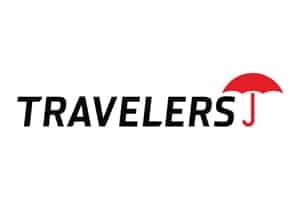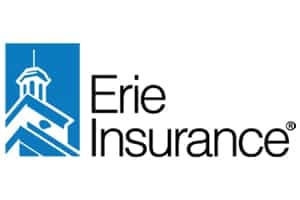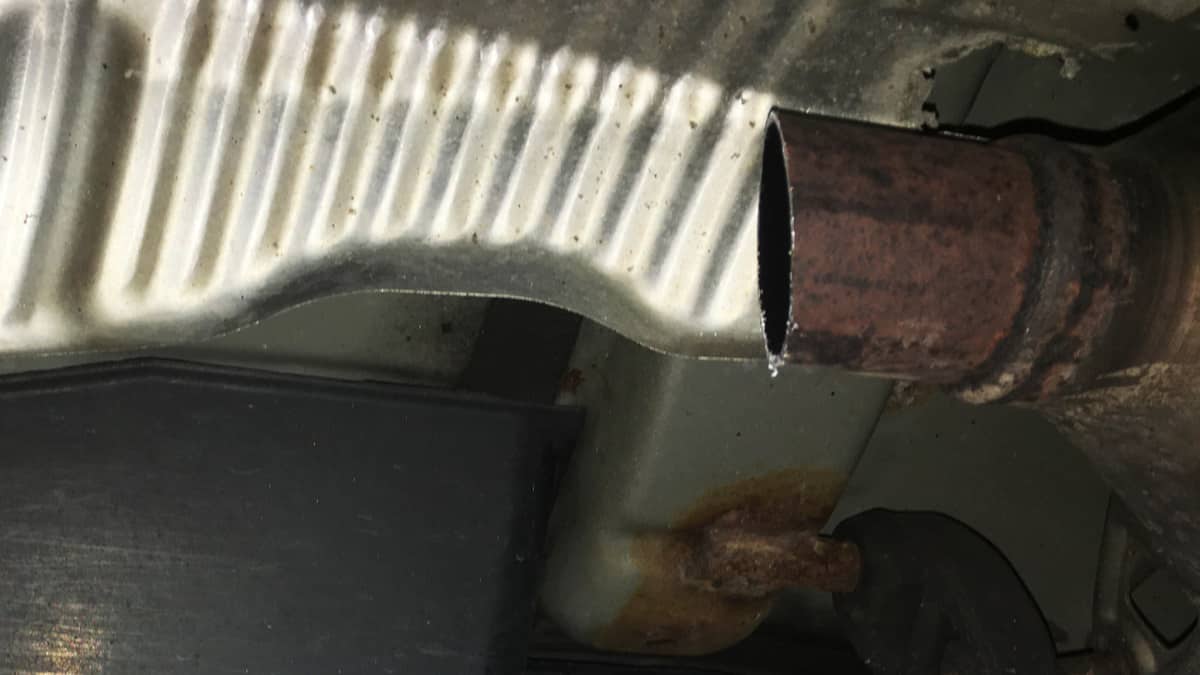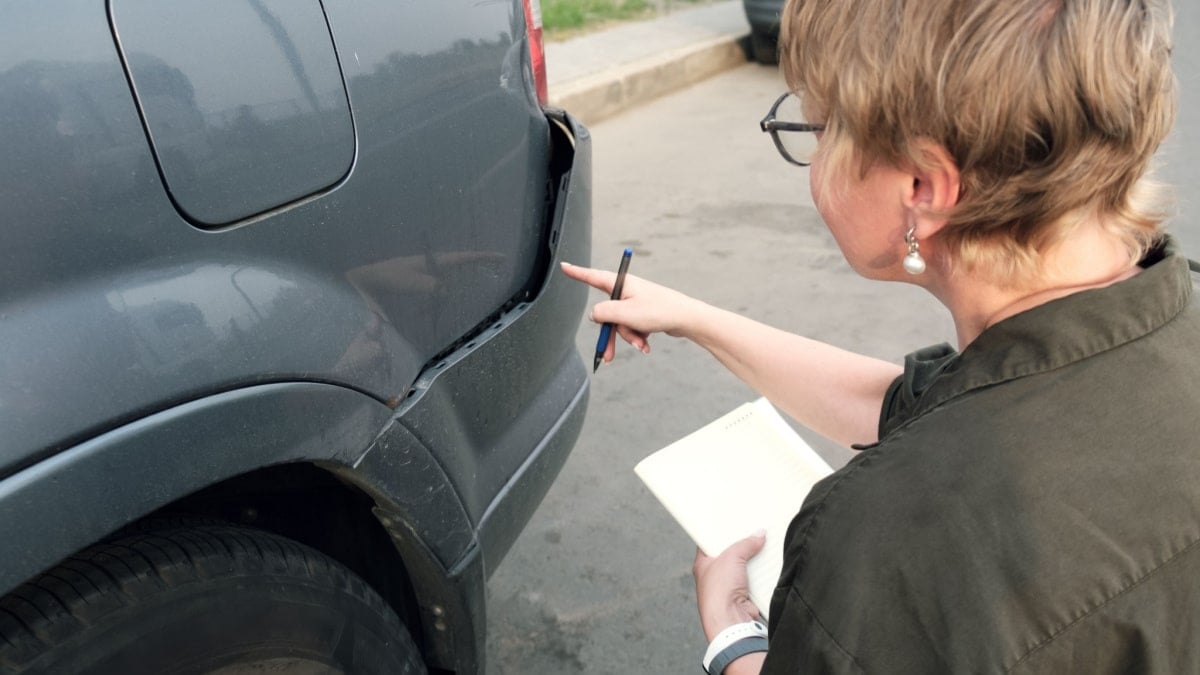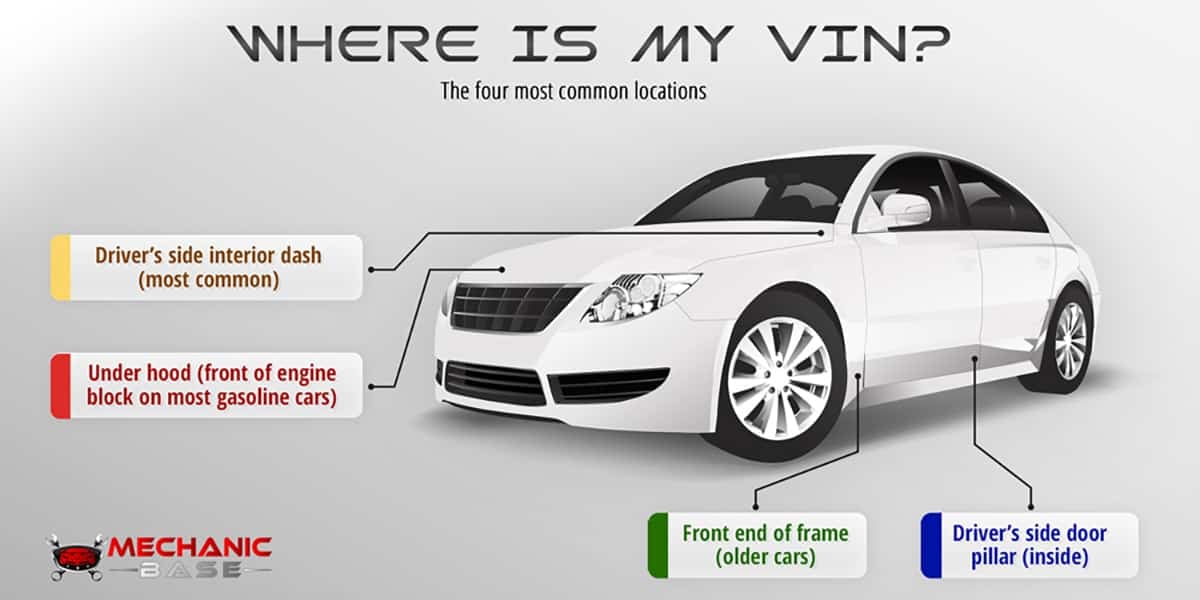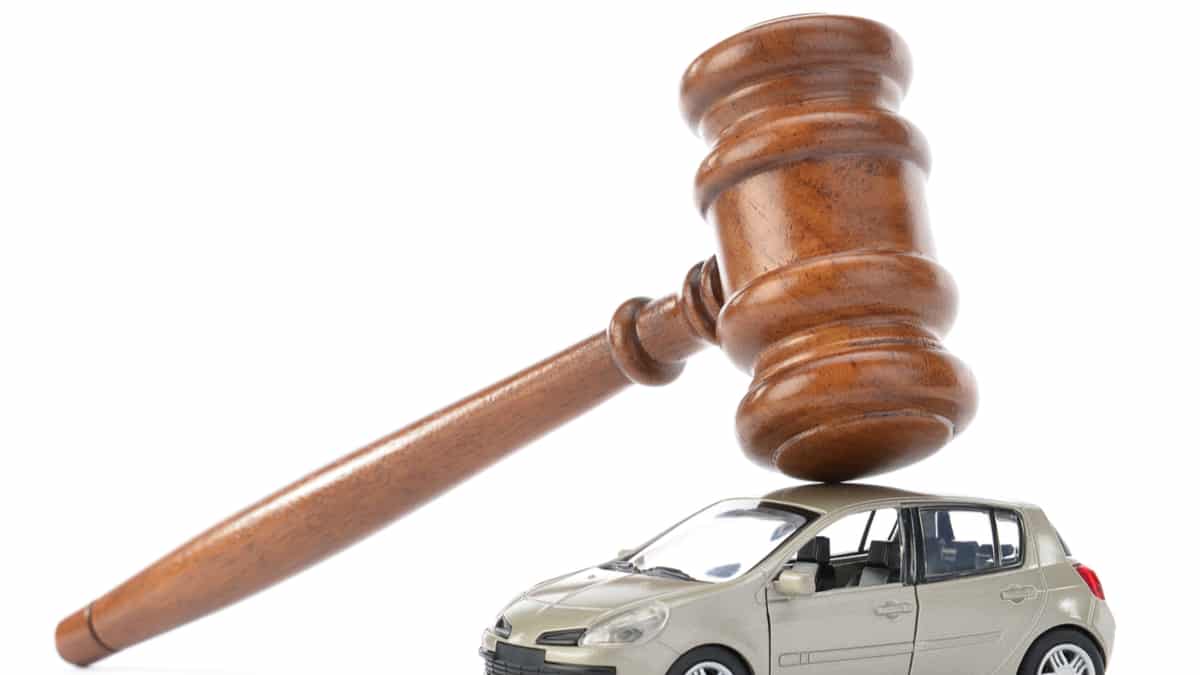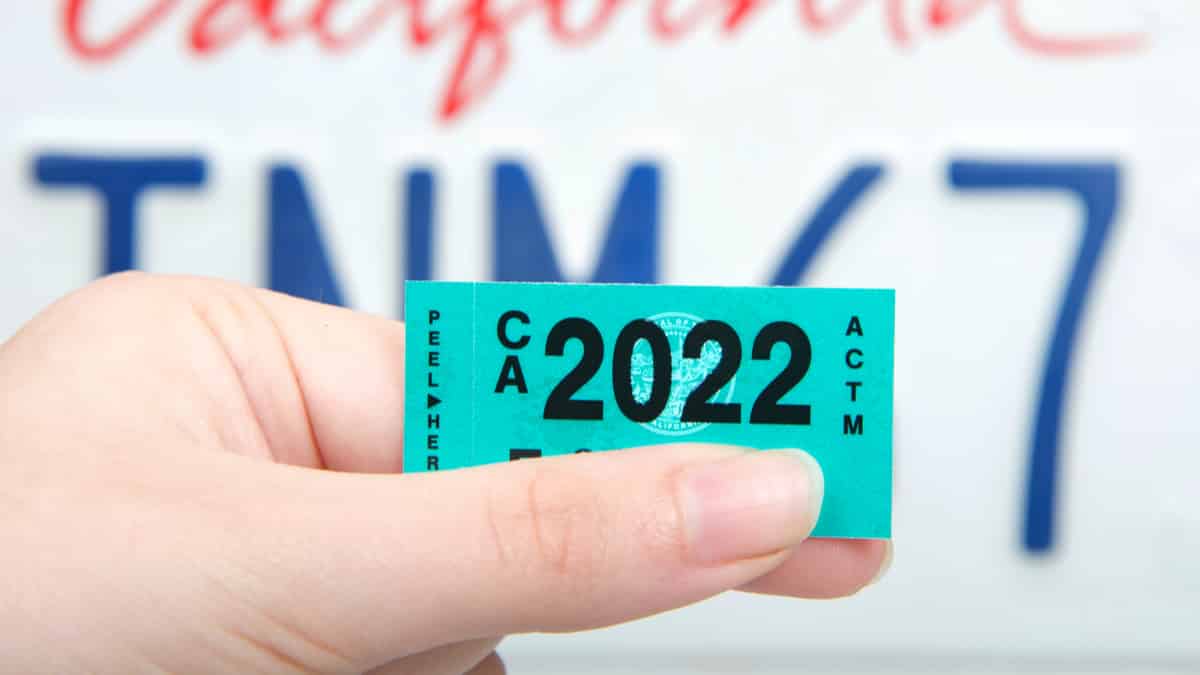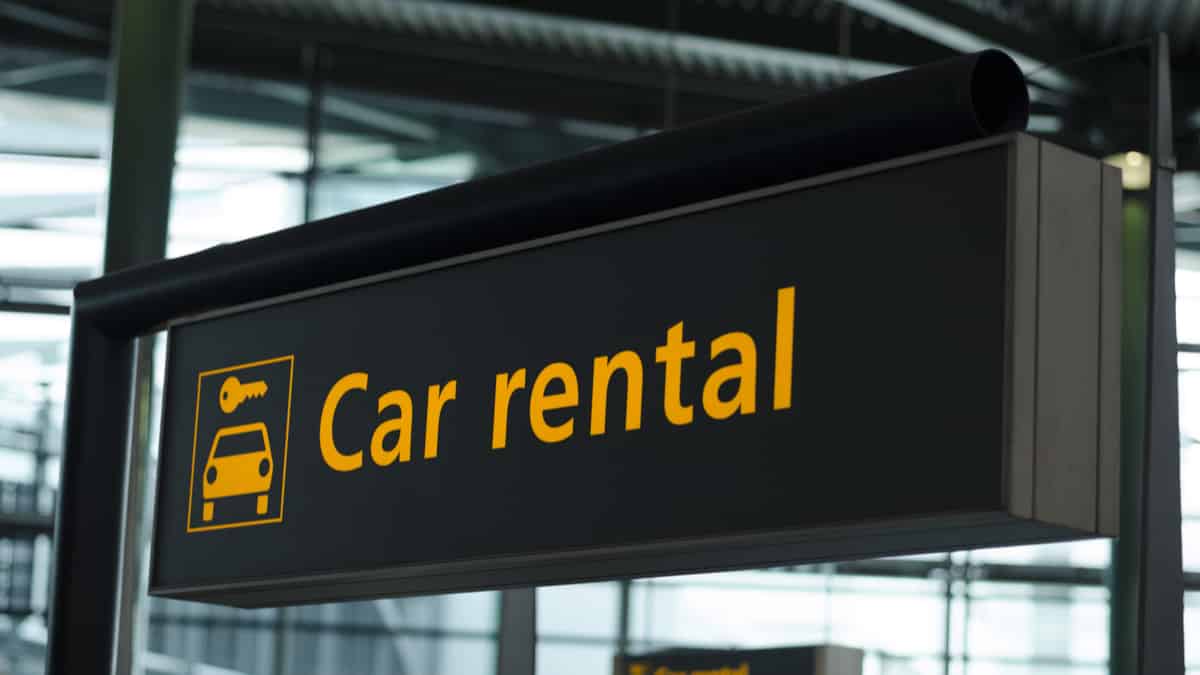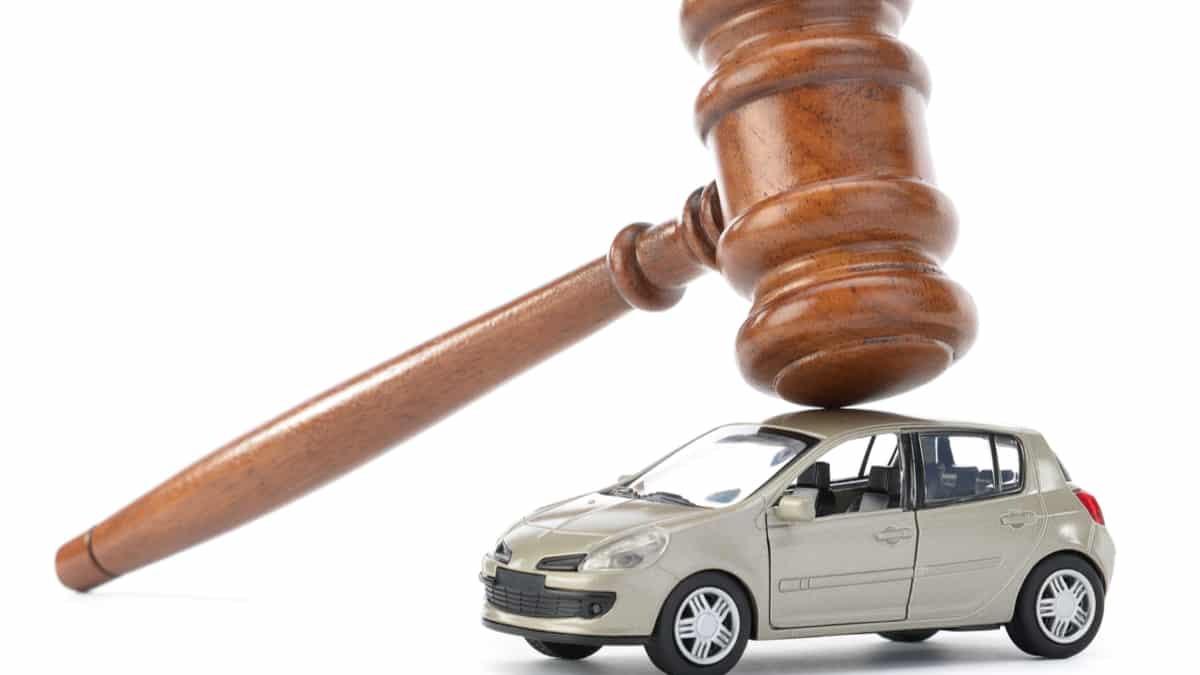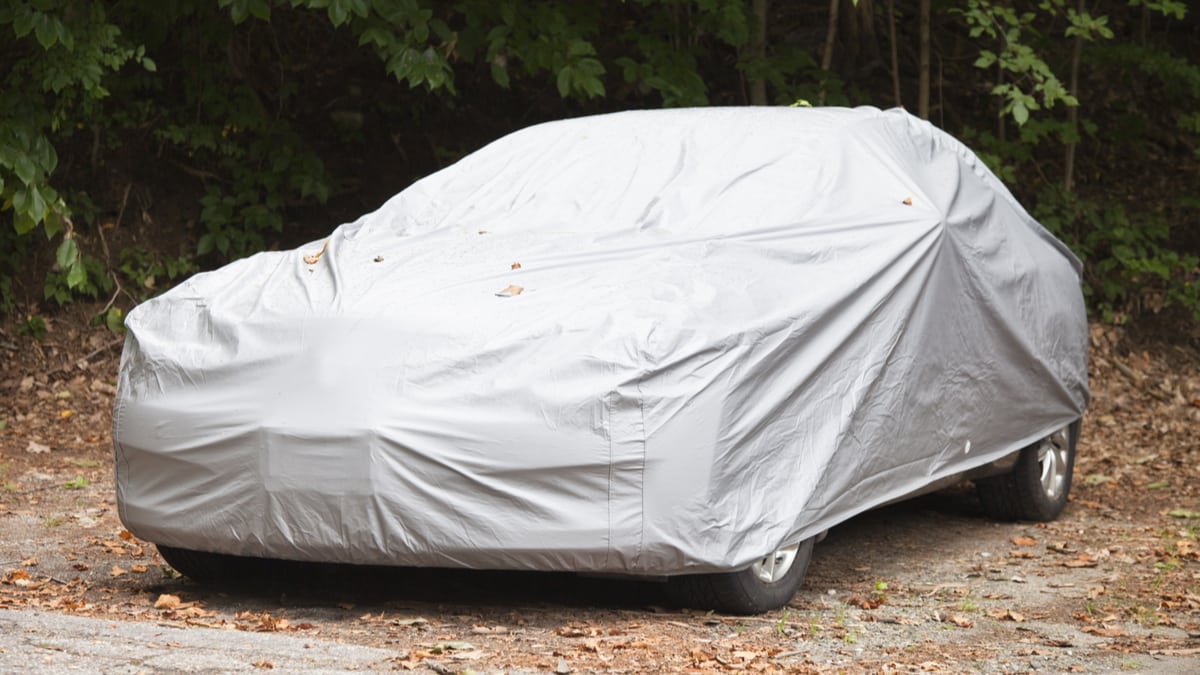Having car insurance is a legal requirement to operate a motor vehicle in the United States, and for good reason. They provide you with monetary coverage in case you get into an accident, which is a big deal if something happens.
But not every car insurance company is equal, and it’s why we wanted to take the time to highlight ten of the best car insurance companies you have to choose from in the United States. These companies will provide you with the coverage you need, won’t create a ton of headaches when you need to use them, and won’t fleece you with terrible rates.
Top 10 Best Car Insurance Company
There are dozens of car insurance companies in the United States. But while there are tons of companies, they don’t all provide you with reliable coverage you can count on. With any of these ten companies you can rest easy at night knowing you have a great car insurance company covering your vehicles.
1. Geico – Best Car Insurance Company Overall
Geico is one of the largest and best car insurance companies in the country for a reason. They offer affordable rates and outstanding customer service when you do need to use them.
Even better, they offer tons of insurance options and perks, including features like accident forgiveness. This allows you to keep the same rate on your insurance even after your first at-fault accident.
With Geico you can also pick from a selection of deductibles and policy coverage options to help you get the coverage you need at a price you can afford.
Finally, Geico offers tons of potential policy discounts from a good student discount to bundling deals, allowing you to get the lowest possible rate. Their bundling perks are especially impressive since they have insurance options for just about anything.
2. State Farm
If you’re looking for the largest car insurance company in the US, it’s not Geico, Allstate, or even Progressive, it’s State Farm. State Farm owns more than 15 percent of the car insurance market share, which is far larger than any other car insurance company.
There’s a reason they’re so popular too. They offer phenomenal rates, and they keep a small company feel by working with local insurance agents in each market. Not only does this help make it feel like you’re working with a local company, but it also helps improve customer service since you know the people you’re working with by name.
State Farm does a great job of customizing coverage to exactly what you need, and they allow you to have some control over your deductible and coverage limits. This helps you get the coverage you need at a price you can afford.
However, while many other insurers offer accident forgiveness as a potential policy perk, State Farm doesn’t offer this for most members. This is one of the biggest reasons that they don’t top our list, but with the outstanding prices and bundles that they offer, they’re still worth considering.
3. Allstate
Allstate does a lot of the same things that State Farm does, they just don’t dominate as much of a market share. They typically offer outstanding rates, and they use local agents to keep a more personal feel despite being a much larger company.
They also let you customize your deductible a bit, which lets you keep your price in check while not having a deductible you could never actually afford.
Allstate offers tons of other types of insurance that make it easy to bundle your policy. Finally, they offer an accident forgiveness upgrade to your plan. So, if you opt for the feature and get into an at-fault accident, they won’t raise your rates as a result.
Allstate does a lot of things right, and that’s why they’re right here at the top of our list.
4. Progressive
With Progressive, it’s all about the price. It’s not that they don’t offer great policies and outstanding customer service, because they do, but their top selling point is the ability to get an insurance policy that matches your budget.
Other insurance companies have you select the coverages you want and then give you the price for it all. Progressive offers this, but they also let you tell them how much you want to pay then they build a plan around this.
It’s a nice option, but you’ll want to go through the plan with a fine-tooth comb to ensure you’re getting all the coverage you need in different situations. But having the ability to pick your monthly price is a huge perk for those on a strict budget.
Progressive does offer accident forgiveness in most of their policies, and for the most part they don’t charge extra for it. However, their accident forgiveness program has a lot of stipulations, and up until you’ve had your policy for five years without any accidents you don’t get all that much coverage.
5. Nationwide
Nationwide is another massive name in the insurance industry, and because of this, they’re able to offer a ton of insurance options at a great price.
A huge perk that Nationwide offers is that they offer a ton of different insurance types. They offer their car insurance, renter’s, and homeowner’s policies of course, but they also offer life insurance, supplemental insurance, disability insurance, and a ton more.
Having all your insurance policies in one place allows you to bundle more, and the more you bundle, the less you’ll have to spend for all the policies.
Nationwide also offers outstanding customer service and a hassle-free claims process, and they offer accident forgiveness and moving violation forgiveness as an optional policy upgrade. With Nationwide you can get as much coverage as you want and tailor your policy to exactly what you need.
6. Farmers
Farmers insurance’s top selling point is their policy perks. Of course, they offer competitive rates, a smooth claims process, and outstanding coverage like all the policies on our list, but their policy perks really set them apart.
They simply offer things that other insurance companies don’t. For starters, they offer a new care replacement perk, allowing you to get more for your vehicle if it is totaled.
They also offer a loss of use perk, which pays you a set stipend to cover expenses when you’re without your vehicle. This is in addition to their rental care reimbursement program!
They also offer perks like accident forgiveness, multi-policy discounts, and roadside assistance coverage. If you want a little more from your car insurance, Farmers is a company that you’ll want to consider.
Just keep in mind that all these policy perks are optional add-ons. That means you’re paying extra for the features, but the price for those features might be something you’re alright with because of the extra coverage they provide.
7. Liberty Mutual
Customizing your car insurance is what Liberty Mutual is all about. They don’t want you paying for extra features that you don’t care about, and this often lets you get a lower rate for your insurance.
But getting the right plan with a policy like this requires you to have a little more foresight, and if you’re not careful, you might accidentally cut a service that you need to use down the road. There’s a real risk of getting barebones insurance that doesn’t cover much.
Still, if you want extra coverage in some areas and drop other areas because you’ll never use them, Liberty Mutual lets you customize your insurance to get the exact coverage you want.
They also have outstanding customer service, and if you’re unsure about which coverage you need, one of their professionals will gladly help you out and break down all the ins and outs of each part of your policy.
8. USAA
One of the most important features that you need to know about USAA is that not everyone is eligible. USAA is specifically for US service members and their families, but even then there are some caveats.
Children of active-duty members whose parents have or had a USAA membership can apply. Grandchildren of service members can also apply, but only if their parents have an active membership.
It’s a lot of eligibility requirements, but if you are eligible, they’re worth checking out. Sometimes they offer rates significantly lower than what other insurance companies will give you. Not only that, but they have some of the best customer service and claim response times in the industry.
So, if you do need to use USAA insurance, it’s likely to be the easiest and most straightforward process out of any car insurance company on our list.
They also offer policies for homeowner’s and renter’s insurance. Most importantly, all of their policies offer some of the most comprehensive coverage you’ll find. USAA policies typically cover all sorts of nuances, letting you get the most out of your coverage and a little extra peace of mind.
9. Travelers
Travelers insurance does a little bit of everything for you. They offer highly versatile coverage options that let you customize your insurance plans to exactly what you need, provide great customer service, lots of policy perks, outstanding rates, and a hassle-free claims process.
But while they do a lot of things well, it’s hard to narrow down any one area where they’re the best. But they do so many great things in so many different areas that you could argue that they’re the best overall.
We highly recommend getting a quote through Travelers insurance to see what perks and features they can offer you. Because while they might not be the first name that comes to mind in the insurance industry, they do enough right to make them an intriguing choice for those that do reach out to see what they have to offer.
10. Erie Insurance
Erie Insurance might be the smallest insurance company on our list, but they’re not exactly a small insurance company. They also offer tons of perks and seem a bit more interested in keeping your business than some of the larger insurance companies.
For instance, their rate lock program keeps your premium the same year after year. They also offer accident forgiveness after three years, and they have a diminishing deductible program.
They offer competitive rates and outstanding customer service too. But with Erie insurance they want to do whatever they can to keep you onboard after you sign up. That’s a big difference between other companies that seem to care less after starting a policy with them.
Car Insurance Guide
Now that you know a little bit about some of the best car insurance companies in the United States, it’s time to dive into everything else you need to know to pick out your car insurance company.
Going with the right insurance company can save you hundreds of dollars each year, but going with the wrong one can leave you without coverage when you need it most. This buyer’s guide will walk you through everything you need to know to get the best car insurance company for your vehicles.
Picking an Insurance Company
There are a lot of insurance companies on our list, which can make it a bit confusing when you’re trying to narrow it down to just one. We’ll break down everything you need to know to pick just one, but we want to highlight a few things for you upfront.
First, don’t think your insurance company is there to look out for you. They’re there to make money off you, and you should view them in the same light. If all coverage limits are the same, go with the lower-priced option.
Also, don’t be afraid to switch from an insurance company if someone else is offering you a better rate now. Don’t go with a no-name insurance company that might not pay out when you need it, but if you’re going to another reliable company, like any of the ones on our list, just go with the one that’s going to give you the best possible rate!
Get Multiple Quotes
Many people recommend getting at least three different insurance quotes before picking one. While that’s a great rule of thumb, we recommend going with more. While it takes a little bit of time to get a quote, it can save you hundreds of dollars throughout the year.
When you run those savings out over multiple years, going through the extra work now can easily save you thousands of dollars in the long run. So, why stop at just three quotes?
Get a quote from every insurance company on our list, see what they have to offer, then go with the plan that fits your needs best. The more companies you get quotes from the more likely you are to get the best possible deal and coverage.
How Much Should You Pay?
It’s the golden question, and while we’d love to give you an exact range to work off of, there are simply too many factors at play here. Insurance companies use your age, driving history, location, type of vehicle, average mileage, marital status, and just about anything else you can think of to determine your rate.
So, while we could throw out some numbers for you, it’s really best just to get a quote and see what they’re quoting you at. Once you have three to five quotes, you’ll have a pretty good idea of what price range to expect.
Stay on Top of Price Increases
You’d think that insurance companies would want to reward loyal customers that don’t create problems by keeping rates low and even providing discounts and perks. While that’s the case with some companies, more often than not they’ll try to do the exact opposite.
Insurance companies want to make as much money off you as possible, and they know you expect small increases each year due to inflation and other increases in prices. Insurance companies use this against you by raising your rates a little bit at a time and hoping you won’t notice or go get new quotes.
Don’t fall for it. Every few years call around again and see if anybody else is willing to offer you a better rate. If they are, call your insurance company back and see if they’ll match it. Sometimes they will, other times they’ll let you go.
Either way, you’re dropping your monthly payments. Don’t think your insurance company is looking out for you just because you’ve been a good customer for them. All they care about is the money, so don’t view them in a different light – and don’t feel bad about switching to save yourself some cash.
Can You Switch Car Insurance Companies Whenever You Want?
For the most part, you can switch car insurance companies whenever you want. However, keep in mind that many car insurance companies will charge you a cancellation fee if you cancel outside of a specific window.
But sometimes your new car insurance company will actually cover this fee for you to entice you to switch to them. If you’re wondering whether you can switch car insurance companies without incurring a cancellation fee of some sort, reach out to your current insurance company and ask.
If they say there is a fee, ask the company you’re looking at switching to if they’ll cover it for you.
Potential Discounts
When you’re shopping for car insurance policies you want the most coverage at the best possible price. And when you’re trying to get the lowest possible price, using discounts to your advantage is essential. Some companies will limit the number of discounts you can use, while others let you keep piling on.
Either way, below are four of the most common types of discounts you can get to help you lower your rate.
1. Bundle Your Policies
Chances are you have more than one type of insurance. If you own your home you have homeowner’s insurance, if you don’t you have renter’s insurance. You also might have life insurance, disability insurance, or a multitude of other insurance policies.
As a rule of thumb, the fewer insurance companies you can work with, the lower your overall price tag will be. That’s because insurance companies give significant discounts by bundling policies.
Bundle your insurance policies and you’re going to save money. So, if you need a type of insurance that your current provider doesn’t cover, consider switching to an insurance company that offers it all for you.
2. Multi-Vehicle Discounts
If you drive more than one vehicle, the last thing you want is to go with different insurance companies for each vehicle. Just like insurance companies offer discounts for bundling different policies together, you get significant discounts for insuring more than one vehicle with the same company.
Insure all your vehicles with the same company and watch the cost for each vehicle drop.
3. Student/Military/Law Enforcement
While these types of discounts aren’t always available, and they don’t add up to as much as bundling policies, they’re still worth looking into. These discounts can end up cutting 5 to 10 percent off your insurance bill, and over the course of a year that can save you a few hundred dollars.
Don’t just assume you don’t qualify for any of these discounts either. Some companies offer discounts for teachers, doctors, nurses, making online payments, and just about anything else you can think of.
Ask what discounts you might qualify for when you’re getting a quote from different insurance companies – even if you don’t think you’ll qualify for anything. They might offer something that surprises you!
4. Safe Driver Programs
This is a program that more and more car insurance companies are adopting, and if you drive in a safe manner, it’s worth considering. Companies either have you install an app on your phone or put a device in your vehicle and then they monitor the way you drive.
If you avoid accelerating or braking too quickly, follow the speed limit, and display other forms of safe driving, they’ll discount your insurance. These are optional programs, but sometimes they can drop your insurance by as much as ten percent!
Full Coverage vs Liability Insurance
One of the most important decisions you need to make when picking an insurance policy is whether you want full coverage or liability insurance. Full coverage is just what it sounds like – it covers both your vehicle and whatever you hit.
Liability insurance, on the other hand, only covers the other vehicle. That means if you’re in an at-fault accident, your insurance company will only cover the damage to the other person’s vehicle or property.
That’s a big difference, and it could leave you without a working vehicle if you get into an accident that’s your fault.
Furthermore, if you currently have a lien on your vehicle, meaning you don’t own it outright, you might have to get full coverage insurance. That’s because the company you owe money to for your vehicle doesn’t want you to get into an accident, lose your vehicle, and then default on your loan with nothing for them to collect.
Finally, always read the fine print when you’re selecting your insurance plan. Not every car insurance company’s full coverage gives you the same amount of protection. Some companies claim that you’re getting full coverage but then have a watered-down version that doesn’t actually cover everything.
Read the fine print on what your insurance covers, and don’t just assume that you’re good to go because the car insurance company says you have “full” coverage.
What Is Comprehensive Car Insurance?
Another term you’ll hear thrown around when you’re looking at car insurance policies is “comprehensive” car insurance. But what exactly is comprehensive car insurance, and is it a good idea for your vehicle?
In short, comprehensive car insurance covers everything that could happen to your vehicle outside of a vehicle collision accident. This includes theft, hail damage, vandalism, and even hitting an animal.
But just like every insurance company doesn’t cover all the same things with a “full” coverage policy, the same thing applies to comprehensive coverage.
Some companies claim that they’re giving you “comprehensive” insurance but have coverage limits so low that it doesn’t really cover anything, or they only cover very particular and specific events so you don’t have true comprehensive insurance.
How Much Does Insurance Cover?
This is the question that everybody wants an answer to, and the truth is that it really depends on your insurance company. Because of the wide variety of coverage limits with different insurance companies, it’s important to dive into the nitty-gritty details of your insurance plan.
Different coverage amounts that you need to be aware of include bodily injury liability, property damage liability, collision, and comprehensive coverage limits.
Each state sets its own requirements for minimum coverage but going with the minimum coverage isn’t always the best bet. Keep in mind that just because your insurance caps out at a certain amount it doesn’t absolve you of responsibility for charges that go over that amount.
So, when in doubt go with more coverage. That way you’re not facing a legal battle worth thousands of dollars or more because you capped out your insurance benefits.
Furthermore, when you’re using automotive insurance, your insurance company will typically only cover a maximum amount for a vehicle. This amount goes off what they deem the vehicle is “worth.” A Kelly Blue Book estimate is a great place to start if you’re trying to determine what value the insurance company views your vehicle at.
After that point, your insurance company will typically refuse to spend any more for repairs, instead opting to send you a check for the total value of your vehicle instead. From there, it’s up to you to decide if you want to try repairing your vehicle or if you just want to scrap the vehicle and use the money to purchase a new one.
This maximum payout for vehicle value is a big reason some people choose to only get liability insurance for older vehicles instead of full coverage. Since the maximum payout can be so low anyway, it might not make financial sense to spend more each month to get the benefit.
The Importance of Gap Insurance
When you’re looking at how vehicle insurance companies pay out for totaled vehicles, it’s not hard to see how you could find yourself in a situation with a totaled vehicle and not enough money from the insurance company to pay it off.
That’s where gap insurance comes into play. There are a few different places you can purchase gap insurance, but if you’re in a situation where you owe more on your vehicle than it’s actually worth, it’s something you’ll want to invest in.
Some insurance companies offer gap insurance, as do most lenders where you got the loan for your vehicle in the first place. But if you’re in a situation where both your insurance company and your lender aren’t willing to give you gap insurance, there are third-party services that can provide you with coverage too.
It’s something you hope never to use, but it can really bail you out if you total your vehicle and you’re a few thousand dollars upside down on the loan. Please ensure you have gap insurance if you owe more on your vehicle than it’s currently worth.
Picking a Deductible
When you’re picking out an insurance policy, one factor that you usually have a fair bit of control over is your deductible. Essentially your deductible is the amount of money you’ll need to spend out of pocket before your insurance company covers anything.
Deductibles range from $100 to $2,000, with the higher deductible typically translating to a lower monthly premium. But keep in mind that if you do get into an accident, all those savings can go right out the window when you need to pay the higher deductible to use your coverage.
Not only that, but if you don’t have the deductible on hand, it can put you in a serious financial bind when you’re trying to use your insurance.
While the amount you set your deductible at is completely up to you, the average automotive deductible usually sits around $500.
Hail, Flood, and Theft Insurance
If you go with an insurance policy, even if it’s full coverage, but neglect to get comprehensive coverage, there’s a good chance when any of these things happen, you’ll find that you don’t have the coverage you want and need.
But even if you do get comprehensive coverage, you need to read the fine print of the policy itself to see what it actually covers. It’s not a fun job, but sometimes, you can make some surprising discoveries when you’re reading through all the legalese.
Some comprehensive coverage policies cover theft, hail, and animal damage but specifically exclude floods, while others will specifically exclude theft.
Furthermore, you’ll want to find out if your car insurance policy covers any kind of theft of possessions in your vehicles. Some insurance policies go above and beyond to cover anything that was in your vehicle, while others only cover the value of the vehicle itself.
Knowing what kind of insurance coverage you have before you need to use it is essential in getting the right insurance policy to cover your needs.
Does Insurance Cover Rental Cars?
Once again, this completely depends on the insurance policy you choose. Some insurance companies do a great job of including rental cars in all of their plans, while others don’t cover any kind of backup vehicle.
Of course, you might not want to pay extra to get rental vehicle coverage if you already have a backup vehicle, so having the ability to forego this coverage and lower your rate is a nice perk too.
Keep in mind that while some companies offer rental cars as part of their coverage, they often max out the daily, weekly, and monthly rates they’ll cover, and sometimes they’ll even pick out the rental vehicle for you and not give you a choice.
It all comes down to your insurance company and the specific policy details in your plan.
Look at the Coverage Itself
When you’re shopping around for car insurance, it’s imperative that you look at the coverage itself. Finding the right car insurance for you and your vehicles isn’t all about finding the lowest rate, although that’s an important factor.
You also need to consider the coverage you’re getting. That way if you do get into an accident, you have the coverage you need to stay afloat financially.
Dig into the maximum coverage limits, the different events they will and won’t cover, the deductible, and any policy perks they offer. Only after you’ve considered everything in the plan, the monthly premium included, can you decide which car insurance company and plan is right for you.
Delivery and Rideshare Drivers
If you’re working for a rideshare company or if you’re a delivery driver, you need to be aware that many car insurance companies specifically exclude these activities from their policies.
At the very least, car insurance companies require you to pay more if you’re completing these activities in your personal vehicle. If you get into an accident on the job and you don’t have the correct coverage, your insurance company might not payout.
However, some companies, like Uber and Lyft, actually supplement your insurance coverage with their own plan. But keep in mind that if you’re using their plan you’re subject to their deductibles and other coverage limits – you don’t get to pick them for yourself.
If you have any questions about car insurance and you’re a delivery or rideshare driver, please reach out to your car insurance company and see what they offer to keep you covered in case of an accident!
Do You Need Car Insurance for a Rental Car?
Yes! The real question here is whether you need the supplemental car insurance that rental car companies offer or if your own plan will cover you in case of an accident.
This entirely depends on the insurance company and plan you have. If you’re unsure, we highly recommend calling your car insurance agent and finding out if you need supplemental insurance.
In fact, even if you don’t have coverage, we recommend calling your insurance agent and seeing how much they would charge to add the insurance for a month. Often the quote you’ll get from your own insurance company is less than what the rental agency will charge for their insurance, allowing you to save some money.
RELATED: How Much Does it Cost to Rent a Car for a Week?
Insurance by the Mile
A final option you’ll want to consider if you need car insurance but don’t drive that much is an insurance by the mile plan. These plans start off with a low monthly rate, much lower than you’ll find with any traditional insurance plan.
However, from there, they keep track of how many miles you drive and charge you a rate per mile. While this rate typically isn’t all that high, it adds up quickly if you drive a lot.
These types of insurance plans are becoming increasingly popular in urban areas where people don’t drive all that often. Some insurance companies that offer a pay-per-mile plan include Nationwide, Liberty Mutual, and Allstate.
Because of this, you don’t have to go with a budget insurance company if you want a pay-per-mile car insurance plan!
Don’t skimp on high-quality car insurance. While it might be an expense that you don’t enjoy paying each month, if you ever need to use it, going with a top-notch company will save you a ton of money.
Skipping insurance altogether can be even worse because it’s illegal in most states. That means even if you’re not at fault in an accident or if the police pull you over for something like speeding, you can expect a fine from the police in addition to the rest of your headaches.
Go with a top-notch insurance company from our list and keep yourself covered so you don’t have to deal with any of those headaches down the road!
Categories: Car Insurance, Reviews
